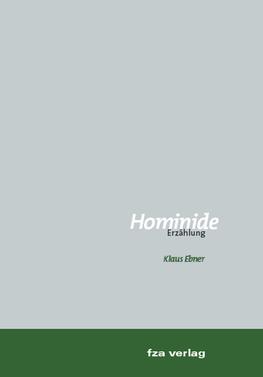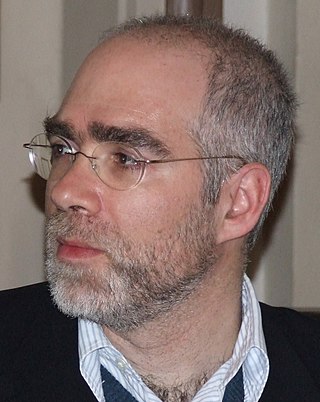Related Research Articles

Robert Menasse is an Austrian writer.
Austrian literature is mostly written in German, and is closely connected with German literature.

The Wiener Moderne or Viennese Modernism is a term describing the culture of Vienna in the period between approximately 1890 and 1910. It refers especially to the development of modernism in the Austrian capital and its effect on the spheres of philosophy, literature, music, art, design and architecture.

Josef Weinheber was an Austrian lyric poet, narrative writer and essayist.

Klaus Ebner is an Austrian writer, essayist, poet, and translator. Born and raised in Vienna, he began writing at an early age. He started submitting stories to magazines in the 1980s, and also published articles and books on software topics after 1989. Ebner's poetry is written in German and Catalan; he also translates French and Catalan literature into German. He is a member of several Austrian writers associations, including the Grazer Autorenversammlung.
The Austrian Writers' Association has been founded in 1945 and was thus one of the first Austrian professional associations after World War II. The association fosters the communication between writers and the contact between authors and readers and is located in Vienna, Austria. Sidonia Gall is chairman of the OESV.

Karl-Markus Gauß is an Austrian contemporary writer, essayist and editor. He lives in Salzburg.
Schreibkraft is an Austrian literary magazine, which was founded in 1998 by the Literature Council of the Forum Stadtpark in Graz (Styria). The magazine prints feature articles. Since 1999 the edition schreibkraft is the publisher. Schreibkraft appears twice a year.
Arovell Verlag is an Austrian publishing house for contemporary literature. It has been founded in 1991 by the Austrian writer, artist and musician Paul Jaeg. Today, Jaeg is still the directing proprietor, while Thomas Gamsjäger is CEO.
Wespennest is a bi-annual literary magazine published in Austria. It includes texts and images by authors and artists, presenting themes on specific countries, literature, art theory or politics, along with interviews, polemics, book and theatre reviews and works of photography on 112 pages.
Lothar Baier was a German author, publisher, translator and co-founder of the Literary periodical Text+Kritik.

Peter Härtling was a German writer, poet, publisher and journalist. He received the Order of Merit of the Federal Republic of Germany for his major contribution to German literature.

Hominid is a short novel by Austrian writer Klaus Ebner. Taking place millions of years ago, it is a fictional story of a band of extinct hominids who inhabit Central Africa. Referencing the seven days of biblical Creation, the novel takes place in seven days. As the protagonist Pitar leads his band to civilization, tension arises between the clan leader Costello and his rival Re. Over the course of the story, Pitar invents tools, discovers the use of fire, and falls in love with Maluma. The seventh day marks a turning point in the storyline, as the members of the band separate from one another.
Ferdinand Ebner, was an Austrian elementary school teacher and philosopher. Together with Martin Buber and Franz Rosenzweig, he is considered one of the most outstanding representatives of dialogical thinking. Ebner's philosophy is about man existing in a I-Thou personal relationship with God and with others. His thought has similarities with the Christian existentialism of Gabriel Marcel. On the basis of the unity of I and Thou, which has in language, and in love its expressions, Ebner developed a religiously informed philosophy of language which led to his practical-ethical understanding of the Christian faith as the basis for the personal fulfillment and the whole social progress.
The Alfred Kerr Preis for literary criticism is an annual award funded by the journal of the German Book Trade.

Mark. H. Gelber is an American-Israeli scholar of comparative literature and German-Jewish literature and culture. He received his B.A. magna cum laude and with high honors in Letters and German. He also studied at the University of Bonn, the University of Grenoble, and Tel Aviv University. He was accepted for graduate studies as a Lewis Farmington Fellow in the Humanities and Social Sciences at Yale University and he received his M.A., M.Phil., and Ph.D. from Yale University. In 1980 he accepted an appointment as post-doctoral lecturer at Ben-Gurion University of the Negev, Beer Sheva, in the Department of Foreign Literatures and Linguistics. Except for guest professorships and research fellowships abroad, he has been affiliated there since that time. His research topics include: German-Jewish literature and culture, the literature of exile, cultural Zionism, early Zionist literature and journalism, literary anti-Semitism, autobiography and biography, and literary reception. He lectures frequently at international meetings and conferences in Israel, Europe, China, and the United States. He is presently professor emeritus with active researcher status.
The Kürschners Deutscher Literatur-Kalender is a reference work that currently contains around 12,000 bio-bibliographic articles and addresses of writers of German literature, as well as translators, publishers, agencies, radio stations, writers' associations, academies, literary magazines and feuilletons, literary prizes and awards in the German-speaking countries. Currently it is published every other year in two volumes by the publisher Walter de Gruyter. The reference work is named after the specialist in German studies Joseph Kürschner.

Vladimir Vertlib, born 2 July 1966 in Leningrad, Russia, immigrated to Austria where he became a writer. His works, revolving around the themes of migration, Judaism, and identity, have been translated to Russian, Czech, Slovenian, and Italian.

Christine Haidegger was an Austrian poet and writer whose memoir Zum Fenster hinaus was translated into English as Mama Dear. She was influential in the Salzburg literary scene.

Bettina Balàka is an Austrian novelist, poet, essayist, playwright and short story writer. Recent novels include Eisflüstern, Kassiopeia (2010) and Unter Menschen.
References
- Herbert Zeman (Ed.): Das 20. Jahrhundert, Geschichte der Literatur in Österreich Vol. 7, Akademische Druck- u. Verlagsanstalt, Graz 1999. ISBN 3-201-01687-X
- Klaus Zeyringer (Ed.): Österreichische Literatur seit 1945, Haymon Verlag, Innsbruck 2001. ISBN 3-85218-379-0
- Literatur und Kritik Nr. 399/400: 40 Jahre, Otto Müller Verlag, Salzburg November 2005.